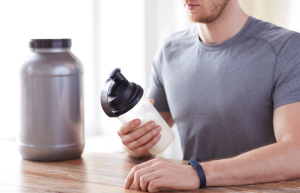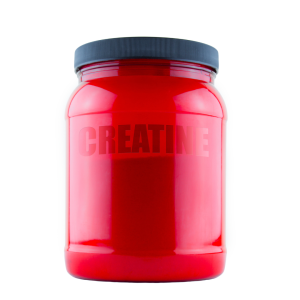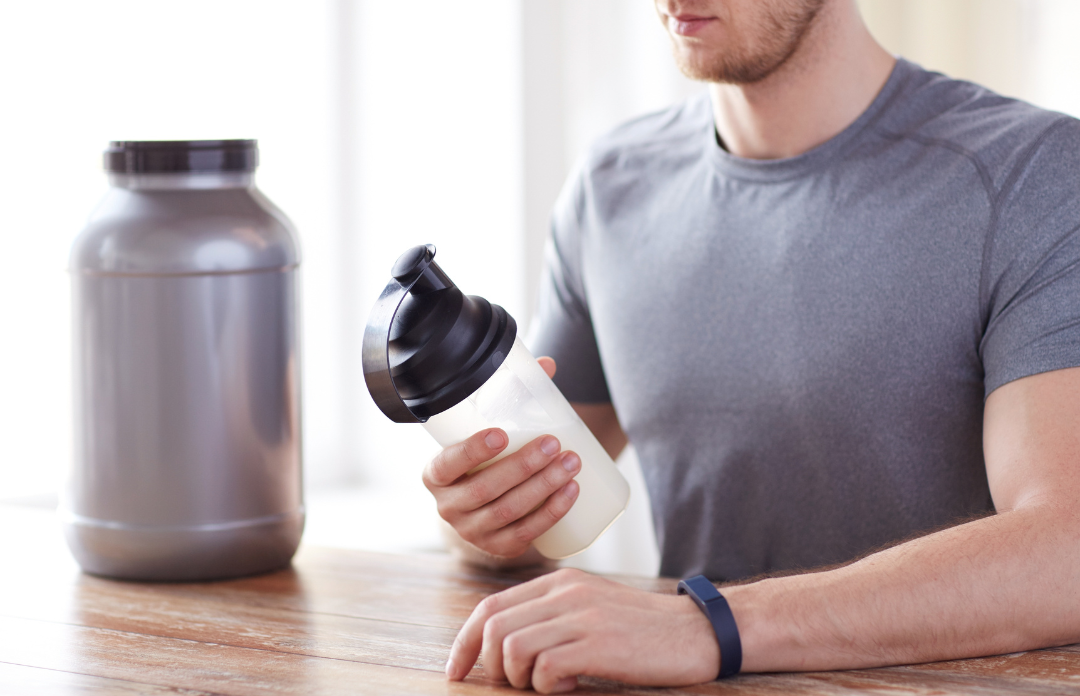Creatine is the most popular supplement among high school athletes, and parents are asking is creatine is safe for kids? In 2021, a scientific review of Creatine Supplementation in Children and Adolescents summarized the safety and performance benefits in adolescents. Early studies of creatine in kids have promising results on athletic performance in soccer and swimming. But there have been studies on kids in other sports or in girls yet.
What is Creatine?
Creatine is a type of protein naturally produced in the body and found in small amounts in meat and seafood. Creatine is stored in our muscles as phosphocreatine, an energy source that produces ATP. This type of energy is used during high intensity explosive exercise such as in sprinting. Taken as a supplement, creatine can help build muscle and boost athletic performance.
Creatine is a type of protein that produces energy for high intensity explosive exercise.
Creatine Improves Performance in Kids
Yes it probably does. The performance effects of creatine in adolescents have only been studied in male soccer players and male swimmers. Of the limited studies done, all of them did observe consistent performance improvements.
Creatine improves sprint speed, power strength and anaerobic exercise.
Elite junior swimmers who took a loading phase of 20g of creatine per day improved:
- sprint speed
- strength
- anaerobic exercise
Elite young soccer players who took a loading dose of 20-30g creatine, improved:
- sprinting
- dribbling performance
- power production
- countermovement jumps
While these results are promising, research is sorely lacking in female adolescent athletes across all sport types and in male adolescent athletes in hockey, baseball, track and field and cycling.
Creatine has only been tested in young male swimmers and soccer players, no studies on girls yet!
Many young athletes take creatine because they think it will help them build bigger muscles. In fact, there are many effective diet strategies to build muscle, but taking supplements is not one of them.
Want to Build Muscle? See my blog on 10 Steps to Build Muscle.
How Many High School Athletes Take Creatine?
Almost 25% of competing male high school athletes are now taking creatine. Interestingly, only 4% of their female peers take creatine. Creatine gets more popular at higher levels of competition; 36% of adolescent athletes competing at an elite international level are using creatine. These numbers are trending upwards.
 How Much Creatine do Kids Take?
How Much Creatine do Kids Take?
It seems that that short term creatine loading of 25g for 4 days is more effective than a 5g maintenance dose over several months. Most studies in adolescents used a loading phase of 20-25g daily for 1-3 weeks with benefits seen as early as in the first week. This was compared to a short loading phase of 25g for 9 days followed by 5g dose for 1-2 months. In fact, the longest study by Theodorou found that in elite swimmers, 4 days of acute creatine loading improves swimming performance significantly when assessed by maximal interval sessions. When they continued supplementation for 2 months at a maintenance dose of 5 g of creatine per day, it did not produce further improvements.
Creatine loading of 25g for 4 days is more effective than a 5g maintenance dose over several months.
Kids Respond to Creatine Differently.
Creatine supplements do raise creatine levels in adolescents, but not as much as they do in adults. Adolescents are not as efficient at building creatine stores and kids have lower baseline levels of creatine compared to adults. We do not know whether there are individual differences in young athletes in how they respond to creatine, as in “creatine responders” and “creatine non-responders”, like we see in adults. Because there have been no studies on teen girls yet, we still do not know how girls respond to creatine.
More questions than answers right now, I’m afraid.
Is Creatine Safe for Kids?
Creatine appears to be well tolerated by youth, with no adverse events reported in early studies. Although an absence of self-reported adverse events by study subjects is not a confirmation of safety, it does suggest that creatine is likely safe for this population.
There is a lack of studies on creatine in kids.
A unique 2019 study published by Simpson and colleagues may provide the first data regarding safety in elite U18 and U21 soccer players. This randomized control trial found a reduction in airways in the young soccer players, after taking creatine for 2 months. The authors concluded that, “we cannot exclude that creatine has an adverse effect of the airways of elite athletes, particularly in those with allergy sensitization.”
Short term creatine supplements are safe for most adults, but there is a lack of research on creatine use in adolescents. For this reason, doctors and pediatric medical societies do not recommend creatine supplements for athletes under 18 years old. Added to this, creatine, like any other sport supplement, can contain other substances not shown on the ingredients label. Brands that are certified and tested to be free from other substances are listed on the Informed Choice and NSF website.
Beware, supplements can be tainted with other substances that are not listed on the label.

Will Creatine Help You as an Athlete?
After working with hundreds of young athletes over the last 20 years, I can tell you that I have yet to meet a teen athlete who has mastered basic sport nutrition strategies like recovery nutrition, optimizing protein timing, hydration, fueling and travel nutrition. There are much more gains in performance to be made from fine tuning your diet and fueling routines, compared to adding a creatine supplement. While creatine may be helpful for some sports, creatine is not a shortcut to high performance.
Creatine is not a shortcut to high performance.
To elevate your performance, optimize your sport nutrition.
For effective strategies to optimize your performance and to build muscle, take my sport nutrition course to optimize your performance through diet. Check out our latest practical sport nutrition course for young athletes: View Courses









2 Comments